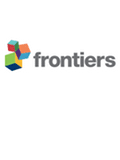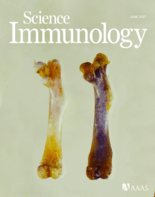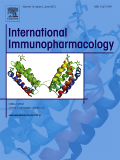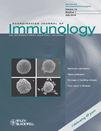
Immunity
Scope & Guideline
Connecting researchers and practitioners in immunological breakthroughs.
Introduction
Aims and Scopes
- Autoimmunity and Immune Mediated Diseases:
Research articles frequently investigate the pathogenesis of autoimmune diseases, including systemic lupus erythematosus, rheumatoid arthritis, and others, exploring underlying mechanisms and potential therapeutic targets. - Animal Models in Immunology:
The journal publishes studies utilizing animal models to simulate human autoimmune conditions, providing insights into disease mechanisms and testing new treatments. - Molecular Mechanisms of Immunity:
A key focus is on the molecular and cellular mechanisms underlying immune responses, including the role of various cytokines, immune cells, and signaling pathways. - Innovative Therapeutic Approaches:
The journal highlights novel therapeutic strategies for modulating immune responses, including the use of small molecules, biologics, and gene therapies. - Bioinformatics and Systems Biology:
Research utilizing bioinformatics approaches to analyze immune-related data and identify new biomarkers or therapeutic targets is a significant component of the journal.
Trending and Emerging
- MicroRNA and Circular RNA in Autoimmunity:
There is a growing interest in the roles of microRNAs and circular RNAs in modulating immune responses and their implications in autoimmune diseases, indicating a shift towards understanding post-transcriptional regulation. - Gut Microbiota and Immune Modulation:
Research exploring the relationship between gut microbiota and immune system function is gaining traction, highlighting the importance of the microbiome in autoimmune disease pathogenesis. - Inflammation and Metabolic Pathways:
Emerging studies focus on the intersection between inflammation and metabolic pathways, particularly how metabolic dysregulation can influence immune responses and contribute to autoimmune disorders. - Regulatory Mechanisms in Immune Tolerance:
There is an increasing emphasis on understanding the mechanisms that govern immune tolerance, particularly in the context of autoimmunity and transplantation. - Therapeutic Targeting of Autophagy:
The potential of autophagy modulation as a therapeutic strategy in autoimmune diseases is becoming a prominent theme, reflecting a broader interest in cellular homeostasis and immune regulation.
Declining or Waning
- Traditional Cytokine Research:
Studies focusing solely on individual cytokines without integrating broader immune network analyses or novel therapeutic perspectives appear to be less frequent, as the field moves towards more complex interactions and pathways. - Basic Immunology without Clinical Relevance:
Research that lacks a direct connection to clinical applications or patient outcomes is becoming less common, with a stronger emphasis now placed on translational research. - Epidemiological Studies on Autoimmune Diseases:
There has been a noticeable decrease in articles focusing solely on the epidemiology of autoimmune diseases, as the field shifts towards understanding mechanisms and treatment options.
Similar Journals

Cellular & Molecular Immunology
Innovative Discoveries for a Healthier TomorrowCellular & Molecular Immunology is a prestigious peer-reviewed journal published by the CHIN SOCIETY IMMUNOLOGY. As a leading journal in the fields of immunology and infectious diseases, it proudly holds a Q1 designation across multiple categories, including Immunology, Allergy, and Medicine (Miscellaneous), reflecting its commitment to excellence and impactful research. With an ISSN of 1672-7681 and an E-ISSN of 2042-0226, the journal has been essential reading since its inception in 2004, continuously gathering insights from cutting-edge studies. It ranks impressively within Scopus, with positions in the 7th, 8th, and 9th percentile in relevant categories, establishing it as a cornerstone for researchers, clinicians, and students alike. The journal offers an extensive range of original research articles, reviews, and clinical studies, ensuring that readers stay at the forefront of immunological discovery. Whether you are interested in basic immunology, infectious diseases, or evolving therapies, Cellular & Molecular Immunology serves as an invaluable resource for advancing your knowledge and engagement in this dynamic field.

Egyptian Journal of Pediatric Allergy and Immunology
Exploring breakthroughs in allergy and immunology for children.Welcome to the Egyptian Journal of Pediatric Allergy and Immunology, a leading academic platform dedicated to the advancement of knowledge in the field of pediatric allergy and immunology. Published by the prestigious Egyptian Society of Pediatric Allergy & Immunology, this journal aims to address the pressing challenges and breakthroughs in the diagnosis, treatment, and management of allergic diseases in children. As a crucial resource for researchers, healthcare professionals, and students, it focuses on disseminating high-quality, peer-reviewed articles that contribute to the global understanding of allergic conditions and immunological responses in pediatric populations. Although the journal is currently not an Open Access publication, it provides a valuable gateway to research findings that can shape clinical practice and influence future investigations. With an emphasis on contributing to improved healthcare outcomes for children suffering from allergy and immunology disorders, the Egyptian Journal of Pediatric Allergy and Immunology stands out as an essential reference in the field.

CRITICAL REVIEWS IN IMMUNOLOGY
Illuminating Insights in Immunological ResearchCRITICAL REVIEWS IN IMMUNOLOGY, published by BEGELL HOUSE INC, is an essential journal in the field of immunology that has been contributing to the scientific discourse since 1980. With its ISSN 1040-8401 and E-ISSN 2162-6472, this journal provides a platform for critical analysis and comprehensive reviews that deepen understanding of immune responses and their implications in health and disease. Although currently categorized in the Q4 quartile for Immunology and Q3 for Immunology and Allergy, the journal's quality research and scholarly contributions are crucial for advancing knowledge within its fields—encompassing various aspects of innate and adaptive immunity. Researchers and professionals in immunology will find invaluable insights, aiding them in their quest for innovation and excellence, as the journal aims to foster interdisciplinary collaboration. While it does not operate on an open-access model, CRITICAL REVIEWS IN IMMUNOLOGY remains a significant resource for those dedicated to pushing the boundaries of immunology, with annual publications expected to last well into 2024 and beyond.

IMMUNOLOGY AND CELL BIOLOGY
Advancing the Frontiers of Immunology and Cell BiologyIMUNOLOGY AND CELL BIOLOGY, published by Wiley, serves as a prominent platform for disseminating cutting-edge research in the fields of immunology and cell biology. With an ISSN of 0818-9641 and an E-ISSN of 1440-1711, this journal has established itself since its inception in 1987, demonstrating a commitment to advancing knowledge in its disciplines through high-quality articles. Renowned for its rigorous peer-review process, it holds a Q2 quartile ranking in both immunology and cell biology categories as of 2023, showing its competitive stature in these fields. IMUNOLOGY AND CELL BIOLOGY is indexed among the elite journals worldwide, with impressive Scopus rankings, including a rank of #75/233 in Immunology and Allergy. The journal’s comprehensive scope ensures that it caters to an audience of researchers, professionals, and students who are dedicated to exploring the intricate mechanisms of immune responses and cellular interactions. Although it does not operate under an open access model, its subscription-based content remains invaluable for those seeking to broaden their understanding of immunology and cell biology. By providing a forum for significant scientific dialogue, IMUNOLOGY AND CELL BIOLOGY continues to shape the future of research in these vital areas.

Frontiers in Immunology
Advancing Immunological Insights for a Healthier TomorrowFrontiers in Immunology is a leading open-access journal published by FRONTIERS MEDIA SA since 2010, dedicated to advancing knowledge in the field of immunology. With an impressive Q1 ranking in both Immunology and Allergy as of 2023, this journal exemplifies excellence in research dissemination, positioning itself among the top 22% of relevant literature in the discipline. The journal, based in Switzerland, emphasizes its commitment to open science by ensuring all published research is freely accessible, fostering collaboration and innovation among researchers, professionals, and students alike. With substantial visibility demonstrated by its ranks within the Scopus database—ranked #52 out of 233 in Immunology and Allergy, and #58 out of 236 in Immunology and Microbiology—Frontiers in Immunology serves as a vital platform for cutting-edge research. Researchers are invited to contribute original investigations and reviews that expand the understanding of immune mechanisms, therapeutic advancements, and clinical applications, making it a cornerstone for those looking to push the boundaries of immunological science.

Science Immunology
Championing Open Access to Immunological BreakthroughsScience Immunology, published by the American Association for the Advancement of Science, is a leading journal in the field of immunology, recognized for its significant impact and rigor in advancing our understanding of immune responses and complex diseases. With an impressive impact factor that places it in the Q1 category of both immunology and allergy, as well as miscellaneous medicine, this journal is ranked #7 and #8 in their respective Scopus categories, reflecting its high-quality research output. Since its inception in 2016, Science Immunology has been at the forefront of interdisciplinary immunological research, fostering crucial insights that link immunology with pressing health challenges. The journal is committed to providing open access to its content, ensuring that groundbreaking findings are accessible to a global audience of researchers, professionals, and students. Its anthology not only addresses fundamental immunological mechanisms but also enhances the dialogue on translational applications and therapeutic interventions, solidifying its position as an essential resource within the scientific community.

International Immunopharmacology
Connecting Researchers to the Future of Immune System ScienceInternational Immunopharmacology, published by Elsevier, stands as a prominent journal within the disciplines of immunology and pharmacology. With an ISSN of 1567-5769 and an E-ISSN of 1878-1705, this esteemed journal is based in the Netherlands and features a robust commitment to disseminating high-quality research from its inception in 2001 through 2024. The journal has achieved impressive rankings, securing a Q1 category in Pharmacology and Q2 in both Immunology and Immunology and Allergy as of 2023. With its strategic focus on bridging the gap between immunology and pharmacological applications, International Immunopharmacology attracts a diverse readership, including researchers, healthcare professionals, and students interested in the latest advancements in therapeutic agents and immune system modulation. Furthermore, it offers an open access option, enhancing the accessibility and reach of its invaluable content. As a pivotal resource in the field, this journal not only facilitates the exchange of innovative ideas but also fosters a deeper understanding of the complexities of immunopharmacology in today’s research landscape.

SCANDINAVIAN JOURNAL OF IMMUNOLOGY
Cultivating Knowledge in the Evolving Field of ImmunologyScandinavian Journal of Immunology is a prestigious peer-reviewed journal published by Wiley, focused on the evolving field of immunology and its interdisciplinary ties with medicine. Since its inception in 1972, this journal has cultivated a rich repository of knowledge, showcasing innovative research and reviews that contribute to the understanding of immune system functions, disorders, and therapeutic interventions. With an impressive impact factor reflecting a Q2 ranking in Immunology and a top-tier Q1 status in miscellaneous Medicine categories for 2023, it is recognized for its high-quality scholarly output, positioning it among the leading journals in the field. Additionally, its Scopus ranking of #84 out of 236 in Immunology underscores its significance and relevance to both emerging and established researchers. Although it does not currently offer open access options, the journal’s expansive reach and rigorous publication standards make it an essential platform for disseminating impactful research to the global scientific community. The journal invites submissions that explore the complexities of the immune system, aiming to bridge clinical and basic science for a comprehensive understanding of immunological phenomena.

JOURNAL OF RHEUMATOLOGY
Leading the Way in Rheumatology and Immunology AdvancementsJOURNAL OF RHEUMATOLOGY, published by the J Rheumatol Publ Co, stands as a distinguished platform within the fields of rheumatology and immunology since its inception in 1974. With an impressive impact evidenced by its 2023 rankings—Q1 in Rheumatology and Q2 in both Immunology and Allergy—the journal has secured its position as a vital resource for researchers and practitioners alike. The journal is dedicated to advancing clinical and experimental knowledge in the pathogenesis, diagnosis, and management of rheumatic diseases, providing a rich repository of peer-reviewed articles that drive innovation in treatment protocols and patient care. Although it operates under a subscription model, the journal remains accessible to a broad audience committed to advancing their understanding of these critical areas. Located in Toronto, Canada, it continues to attract contributions from leading experts globally, making it an essential read for anyone keen on staying at the forefront of rheumatological research and practice.

HUMAN IMMUNOLOGY
Advancing the Frontiers of Immune ResearchHUMAN IMMUNOLOGY, published by Elsevier Science Inc, serves as a critical platform for disseminating research in the fields of immunology and allergy, as well as various aspects of miscellaneous medicine since its inception in 1980. With an ISSN of 0198-8859 and E-ISSN 1879-1166, this journal is pivotal for researchers and practitioners looking to advance their understanding of human immune responses and related conditions. The journal currently holds a respectable position within its field, as highlighted by its 2023 Scopus ranks—#114/233 in Immunology and Allergy and #132/236 in Immunology and Microbiology. Moreover, it maintains a Q2 quartile ranking in both Immunology and Allergy and miscellaneous Medicine, underscoring its influence and reach within the scientific community. Although it does not currently offer Open Access options, HUMAN IMMUNOLOGY remains dedicated to providing valuable insights and fostering academic discourse within its discipline, characterized by a rigorous peer-review process and a focus on innovative research trajectories.